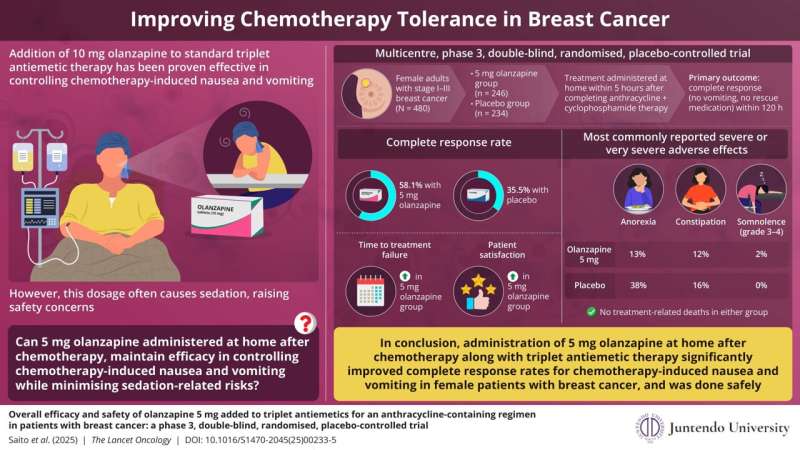Tips for Stopping Nausea While Fasting
Fasting is becoming a popular health and wellness trend. However, nausea is one of the most common side effects. Feeling nauseated while fasting can make it very difficult to get through your fast comfortably. Fortunately, there are many tips and tricks to prevent or relieve nausea during a fast.
Understanding Nausea and Fasting
Nausea while fasting often occurs due to the following factors:
- Blood sugar swings - As glucose levels drop, nausea can set in.
- Stomach acidity - An empty stomach produces more acid, creating nausea.
- Hunger pangs - Your empty, contracting stomach signals nausea.
- Aroma triggers - Smells may trigger nausea when very hungry.
- Anxiety or anticipation - Stress hormones can also induce nausea.
These triggers cause the vomiting reflex through communication between your gut and brain. Fortunately, there are many ways to calm this reflex and ease nausea while fasting.
Tips to Minimize Nausea Before Fasting
Making some preparation ahead of your fast can help prevent nausea:
- Eat regular smaller meals - Don't skip meals before fasting, as this causes blood sugar crashes.
- Avoid heavy meals - Eat light, easily digestible foods before a fast.
- Reduce carbs and sugar - Lower your carb intake leading up to a fast to stabilize blood sugars.
- Stay hydrated - Drink plenty of fluids to avoid dehydration caused nausea.
- Get adequate sleep - Being well rested can reduce anxiety and nausea.
Ways to Calm Your Stomach and Reduce Nausea
Once you begin fasting, here are tips to calm nausea:
- Drink water - Stay very hydrated to settle your stomach.
- Drink herbal tea - Soothing teas like ginger, mint, or chamomile ease nausea.
- Try lemon water - The scent and flavonoids in lemon water reduce nausea.
- Use acupressure - Press on the inner wrist or outer forearm to target nausea pressure points.
- Distract yourself - Keep busy to take your mind off hunger and nausea.
- Control your breathing - Slow, deep belly breathing helps relax the stomach.
- Rest and relax - Lay down and relax to reduce stomach contractions and anxiety.
- Avoid nausea triggers - Stay away from smells, sights, or stressors that trigger nausea.
Supplements that May Lessen Fasting Nausea
Certain supplements may also be helpful for controlling nausea during a fast:
- Ginger - Has long been used to combat nausea and vomiting.
- Probiotics - Help balance gut bacteria and improve gut health.
- Peppermint oil capsules - Soothe the stomach and ease nausea.
- Sodium bicarbonate - Buffers stomach acid to reduce upset.
- Magnesium - Relaxes smooth stomach muscles to decrease nausea.
- Vitamin B6 - Helps regulate nausea signaling in the brain.
Always check with your doctor before taking any new supplements while fasting.
Managing Nausea on Different Types of Fasts
Certain fasts may be more likely to induce nausea. Here are tips for different fasting protocols:
Intermittent Fasting
For time-restricted fasts like 16:8, aim for a gradual transition into the fasting window. Slowly restrict your eating window over several weeks. Stay hydrated, avoid intensive exercise right when fasting begins, and opt for gentle yoga or walking to ease nausea.
Water Fasts
For water-only fasts, nausea is very common. Sip room temperature water slowly. Add a pinch of salt or lemon to help replenish electrolytes. Use peppermint essential oils or teas to calm the stomach. Gentle massage can also help relax the digestive tract.
Juice Fasts
Sugar and liquid calories from juices can spike blood sugar. This causes reactive lows and nausea. Opt for green juices high in nutrients but lower in sugar. Sip juice slowly and dilute with water as needed. Don't gulp large amounts.
Bone Broth Fasts
Sipping warm, salty bone broth is easy on the stomach. It provides electrolytes that reduce nausea symptoms. Go slowly with broth intake. Avoid heavy, greasy broths that could cause upset. Add anti-nausea ginger or mint to your broth.
When to Stop Fasting Due to Severe Nausea
While nausea is common initially when fasting, it should taper off after the first 1-2 days as your body adapts. But if you experience:
- Persistent, severe nausea
- Inability to hold down fluids
- Signs of dehydration like dizziness, rapid heart rate, or dark urine
- Vision changes, muscle weakness, or confusion
These could be signs of more serious complications that require medical attention. Stop fasting and seek emergency care if you experience any of the above symptoms along with severe, unrelenting nausea.
Health Consequences of Fasting with Nausea
Trying to push through a fast while experiencing significant nausea can have negative health impacts. Potential risks include:
- Dehydration - Vomiting leads to fluid and electrolyte imbalances.
- Malnutrition - Inability to keep down supplements limits nutrients.
- Weight loss goals - Nausea may prevent you from completing your desired fasting period.
- Disordered eating - Severe nausea promotes an unhealthy relationship with food.
- Dental health -Repeated vomiting can damage tooth enamel over time.
- Esophageal damage - Frequent vomiting can injure the esophageal lining.
Listen to your body and break your fast if nausea is causing distress or preventing nourishment.
When to See a Doctor for Fasting Nausea
You should make an appointment with your healthcare provider if you experience:
- Severe nausea lasting more than 24 hours into a fast
- Inability to hold down any fluids
- Blood in vomit or black/tarry stool
- Severe abdominal pain along with nausea
- Chest pain, headache, or visual changes
- Signs of dehydration like increased thirst, dry mouth, deep yellow urine
- Difficulty standing or muscle weakness
These can indicate an underlying medical issue that requires treatment. Its important to seek help and not try to simply power through severe, persistent fasting nausea on your own.
Preventing Nausea During Future Fasts
If fasting nausea has been a roadblock for you in the past, make sure to take preventive steps for your next fast:
- Fast for shorter periods to start
- Build up slowly over several fasts
- Stay very hydrated before and during the fast
- Take anti-nausea supplements proactively
- Avoid intense exercise when fasting
- Stop the fast at the first sign of nausea
- Try sipping bone broth to transition off a fast
Pay attention to when nausea strikes and adjust your fasting routine accordingly. Being aware of your body's signals can help prevent repeated fasting nausea.
In Summary
Nausea is a common side effect during fasting, but there are many ways to prevent and treat it. Staying hydrated, using anti-nausea remedies, trying different fasting protocols, and breaking your fast if symptoms persist can help control nausea. Pay attention to any red flag symptoms and see a doctor if nausea is severe or causes distress.
FAQs
Is nausea normal when fasting?
Yes, feeling nauseous when fasting is very common and normal, especially during the first 1-2 days. It's caused by factors like low blood sugar, stomach acid, and hunger pangs.
How long does fasting nausea last?
For most people, nausea when fasting starts to improve after the first 24-48 hours as the body adapts. But if nausea persists past 3 days, it's a sign to stop fasting.
Can fasting cause vomiting?
Yes, fasting can lead to nausea significant enough to cause vomiting in some cases. Vomiting leads to dehydration and electrolyte imbalances, so oral rehydration salts are important.
Is ginger good for nausea when fasting?
Yes, ginger is a proven natural remedy for nausea. Try ginger tea, ginger supplements, or ginger candies to ease nausea while fasting.
Will breaking my fast stop the nausea?
Yes, nausea while fasting will typically resolve after breaking the fast and eating something. Start with easy to digest foods and broths when breaking a fast to prevent further stomach upset.
Disclaimer: This article is for informational purposes only and does not constitute medical advice. Always consult with a healthcare professional before starting any new treatment regimen.
Related Coverage
Today's porn saturation has normalized monotonous, male-centric sex routines. Women report predictability and laziness leaving them turned off and nauseated....
Do you feel nauseated at night as a female? Discover common causes like hormones, acid reflux, stress, food sensitivities. Get tips to prevent and treat nausea....
Nighttime nausea has many potential causes including GERD, pregnancy, migraines, gastroparesis, anxiety, and medication side effects. Tips to relieve and prevent nausea....
Queasiness describes an unsettled stomach sensation related to early nausea without necessarily vomiting. Causes include medication, motion sickness, stress, food triggers....
Find out the correct ondansetron dosage for adults and kids, timing, forms, and safety tips to relieve nausea quickly and safely....
Learn about ondansetron side effects, how to manage them, and what to expect during treatment for nausea and vomiting....
Nausea involves feeling like you may vomit. Pregnancy, infections, medications, digestive issues and motion sickness are common causes. Treatments include medications, lifestyle changes and addressing underlying conditions....
When you feel sick to your stomach, use creative euphemisms like “tossing cookies” or “driving the porcelain bus” instead of saying “throwing up.” More polite and funny synonyms for vomiting....
Nausea is a common side effect of fasting. Drink water, use acupressure, take supplements like ginger, and relax to ease symptoms. See a doctor if nausea is severe....
Find effective chemo-induced nausea relief with low-dose olanzapine, diet tips, and safe strategies to stay strong during treatment....







